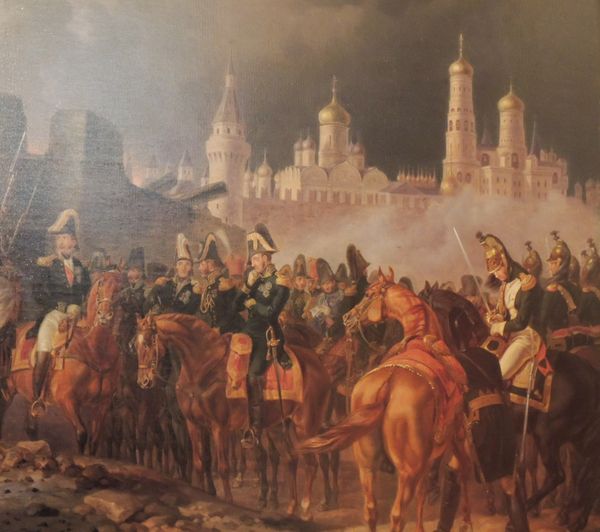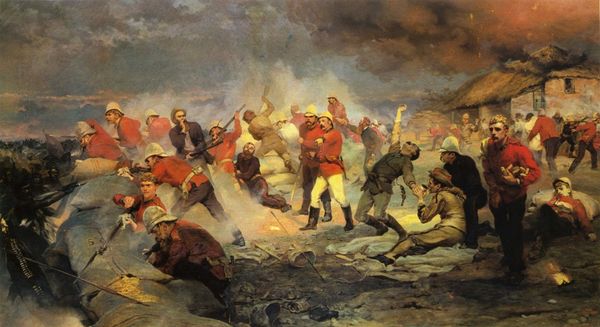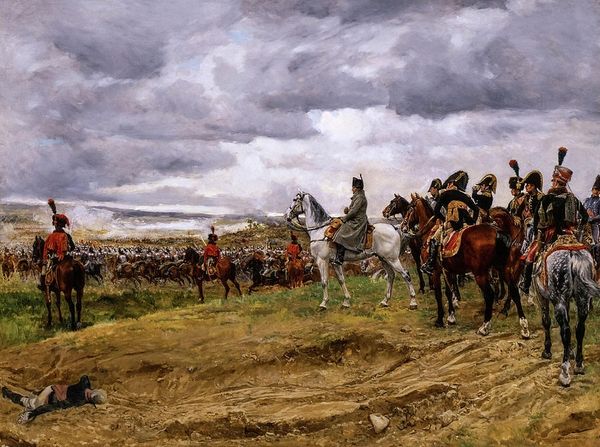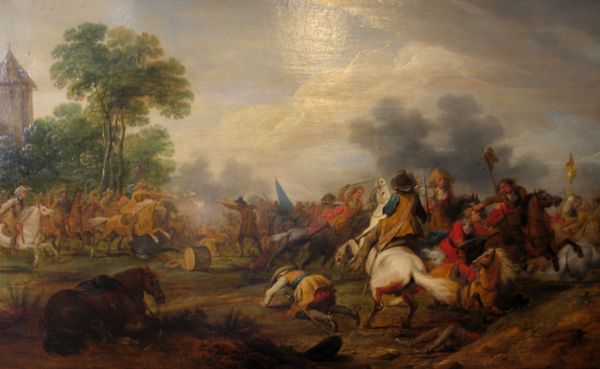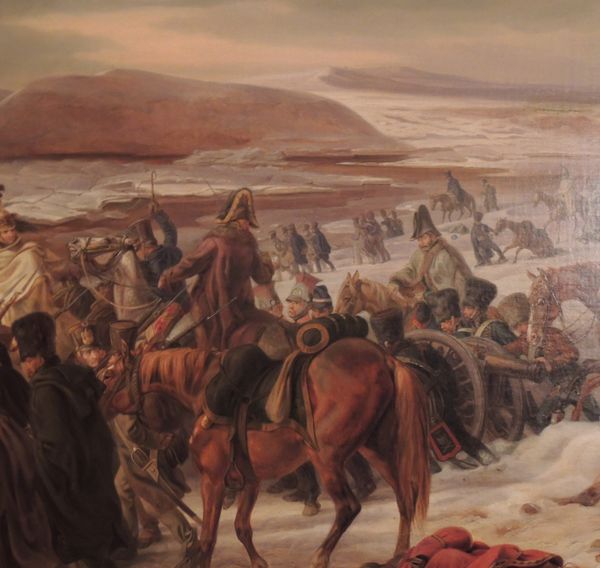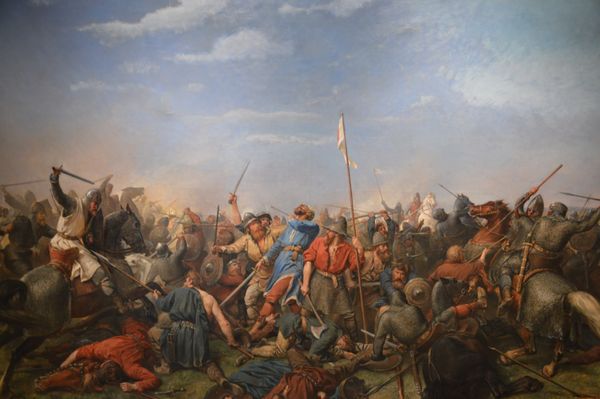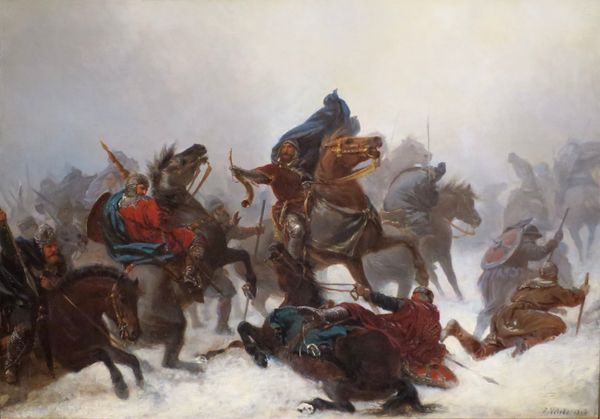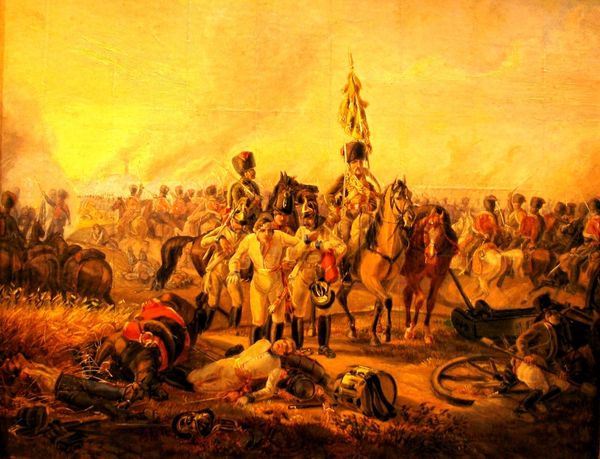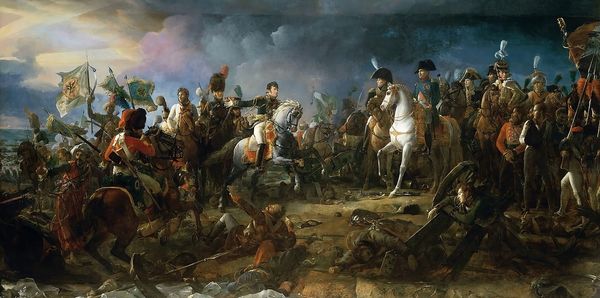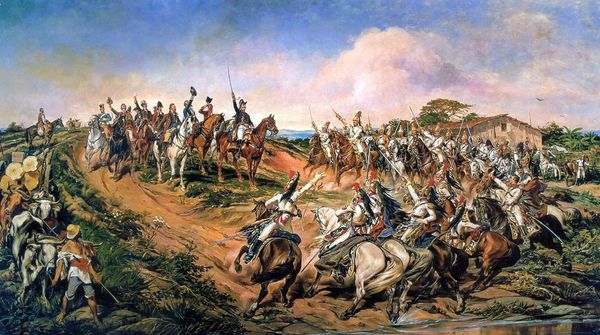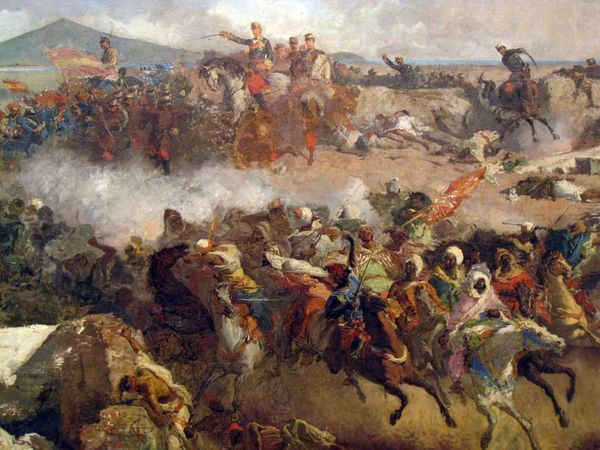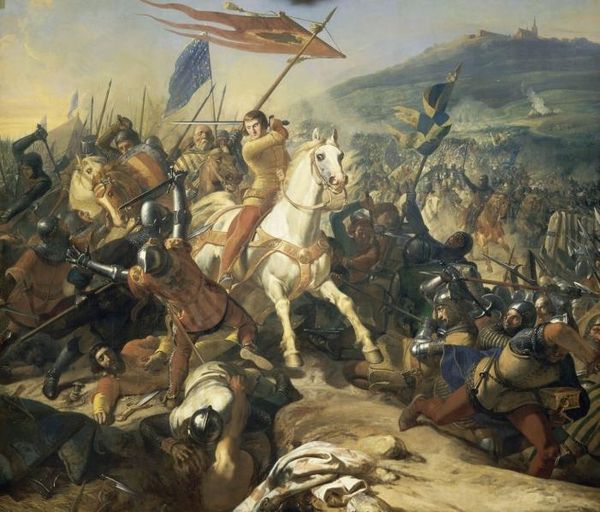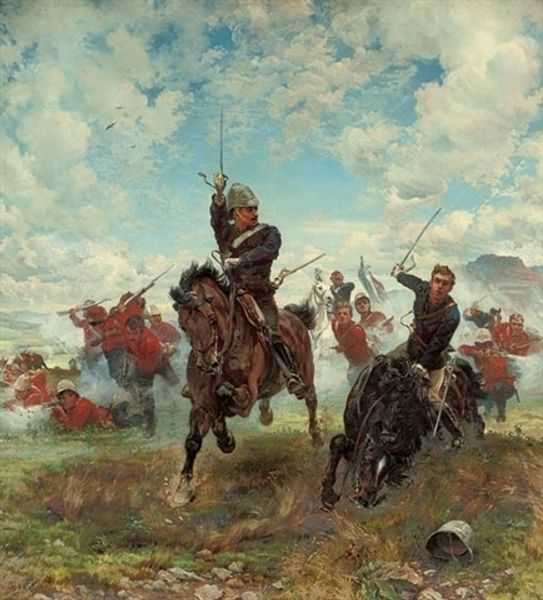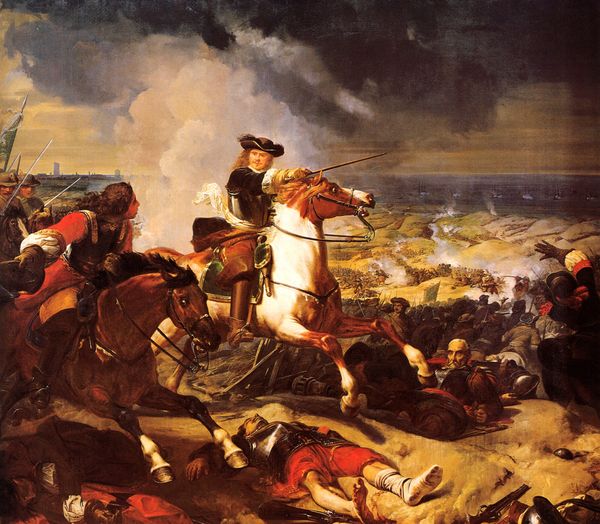
painting, oil-paint
#
portrait
#
painting
#
oil-paint
#
landscape
#
figuration
#
oil painting
#
romanticism
#
painterly
#
history-painting
Copyright: Public domain
Curator: Albrecht Adam's "Retreat of French Troops from Russia," created around 1830, certainly presents a bleak, Romantic vision. Editor: Bleak indeed. The eye is immediately drawn to the defeated figures in the foreground. Even without knowing the history, one senses immense suffering. Curator: It’s an oil painting, and the texture seems key. Adam’s brushwork looks almost frenzied, especially when depicting the snow and the uniforms. Notice how the artist uses these impasto-laden techniques to emphasize movement across the large format canvas, mirroring the French army’s panicked withdrawal. Editor: I'm struck by the symbols of decay: abandoned weapons, dead soldiers. The snow isn't just an environmental element; it is an allegory of erasure and defeat. Napoleon and his generals loom ahead as specters of failure against a pale winter light, soon to be engulfed entirely. Curator: This canvas definitely seems like a conscious departure from classical battle paintings that focused on triumph. Here, the artist uses oil paint as an expressive tool, to highlight the material conditions and catastrophic human costs of war in opposition to previous heroic portrayals. Editor: Precisely! The horses are symbols as well. Some gallop bravely into the distance, seemingly oblivious to their surrounding circumstances, but others stagger or collapse. The difference speaks of endurance or lost strength, and reflects how differently people survive trauma. Curator: The piece is evocative of how the experience of making an image changed to one more focused on industrial production during the 19th century and reflects what was lost in this new making. It also makes me consider how warfare has continued to exploit those making. Editor: Ultimately, it's a painting that reminds us that grand narratives often crumble under the weight of human experience, a somber meditation that endures even as time marches on.
Comments
No comments
Be the first to comment and join the conversation on the ultimate creative platform.
